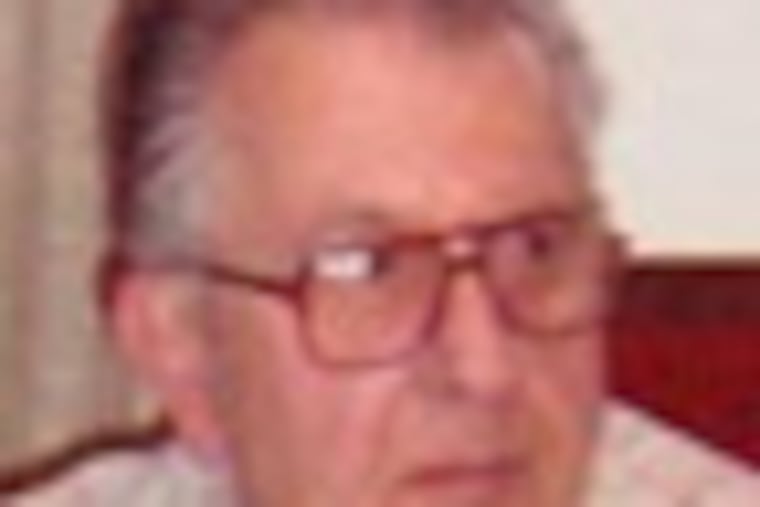Irving Millman, microbiologist
Irving Millman, 88, a microbiologist who helped develop the first hepatitis B vaccine while working at the Fox Chase Cancer Center in Philadelphia, died of natural causes April 17 at Sibley Memorial Hospital in Washington. He had lived in the nation’s capital for the last decade. In the 1960s, Dr. Millman collaborated with researcher Dr. Baruch Blumberg in the latter’s laboratory at the cancer center to create the vaccine, which is credited with saving millions of lives worldwide.

Irving Millman, 88, a microbiologist who helped develop the first hepatitis B vaccine while working at the Fox Chase Cancer Center in Philadelphia, died of natural causes April 17 at Sibley Memorial Hospital in Washington. He had lived in the nation's capital for the last decade.
In the 1960s, Dr. Millman collaborated with researcher Dr. Baruch Blumberg in the latter's laboratory at the cancer center to create the vaccine, which is credited with saving millions of lives worldwide.
The antigen was initially identified by Blumberg; he went on to win the Nobel Prize in Medicine and Physiology in 1976. As Blumberg's subordinate, Dr. Millman was awarded two patents for the work and was also inducted into the National Inventors Hall of Fame in 1993.
To qualify for induction into the Hall of Fame, candidates must hold a U.S. patent in an invention that has contributed significantly to the nation's welfare, and the advancement of science or the useful arts.
Dr. Millman devised a screening test to detect hepatitis B virus in blood-donor samples. The test was important because it allowed blood-collection agencies to identify the virus, which is very infectious, in blood donations. After Dr. Millman's screening test was put into standard practice in 1971, the incidence of hepatitis B in patients who had received blood transfusions dropped by 25 percent, according to information on the hall of fame's website.
Dr. Millman was born in and raised in New York City. He received a bachelor's degree in biology from City College of New York in 1948, a master's degree in virology from the University of Kentucky in 1951, and a doctorate in microbiology from the Northwestern University Medical School in 1954.
He joined Fox Chase Cancer Center in 1967 after working at Armour & Co., the Public Health Research Institute of the City of New York, and the Merck Institute for Therapeutic Research in Rahway, N.J.
Dr. Millman served as an assistant professor at Northwestern University Medical School and an adjunct professor of biology at Hahnemann University in Philadelphia. He was a fellow of the American Academy of Microbiology, and also a member of the New York Academy of Sciences, the American Association for the Advancement of Science, and the American Society of Microbiology.
He served in the Army during World War II in Company D, Seventh Armored Infantry Battalion, Eighth Armored Division, and earned the Bronze Star for meritorious achievement in ground operations in the European Theater on or about April 1, 1945.
Dr. Millman was married for more than 50 years to the former Edith Greifinger. They met at the University of Kentucky. She died of cancer in 2009. The couple made their home in Willow Grove.
Surviving are a son, Steven; a daughter, Diane; and five grandchildren.
Services and interment were Wednesday, April 18, at Shalom Memorial Park.
Donations may be made to Invent Now, National Inventors Hall of Fame, c/o Hannah Paulin, 3701 Highland Park N.W., North Canton, Ohio 44720.
Contact Bonnie L. Cook at 610-313-8232 or bcook@phillynews.com. Read her blog, "MontCo Memo," at www.philly.com.